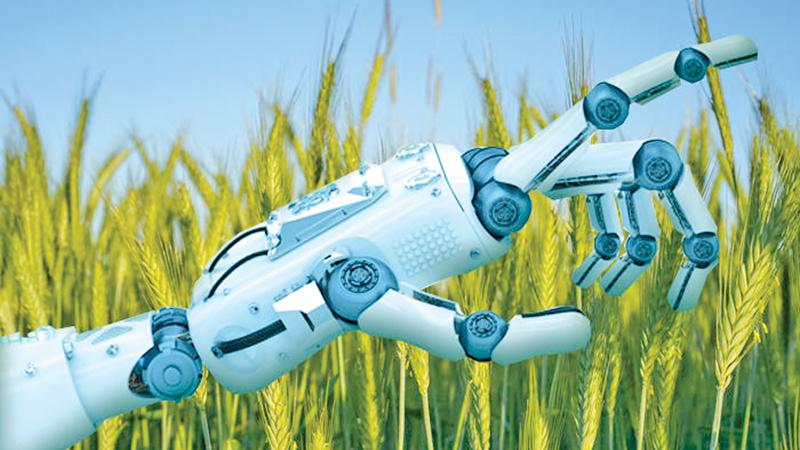
Several private sector entities with the support from academia from universities across the country have embarked on pilot projects to introduce AI (Artificial Intelligence)-based technologies to boost commercial farming, vital to feed the growing population, said Professor in Crop Science, Faculty of Agriculture, and University of Peradeniya, Buddhi Marambe.
He said Sri Lanka needs a paradigm shift in thinking at all levels including politicians, administrators, scientists, academia, extension workers and practitioners (farmers) to keep pace with rapidly evolving technologies.
“The dramatic and more frequently-occurring extreme climatic events has warranted a shift into appropriate technological advances in agriculture to ensure survival. Technology and innovations have become and will be the order of the day in time to come. The world, especially developing countries such as Sri Lanka need a technological revolution in practice and in the mindsets,” Prof. Marambe said, adding that novel technologies will probably be the only solution to reap rich harvests in the future from limited and diminishing resources.
He said there has been a concerted effort by the academia to promote and help policy formulation for reforms in the agriculture sector that urgently needs to keep pace with changes in technology for higher and better yields. Countries across the globe are more and more using technology such as AI, drones, robotics, IOT (Internet of things) GPS and satellites to boost crop yield while mitigating the adverse impact of climate change on crops.
“Leading private sector organisations in the global scene have come forward by introducing the use of robotics or drones to help the farming community to protect their crops especially from pests. For example, drones have now being used to monitor weedy situations in croplands resulting in the application of control measures when and where needed and also to cover a large land area in terms of weed control within a short time span with less labour,” Prof. Marambe said, adding that such technologies will help eliminate a significant volume of pesticides and herbicides from entering the agricultural ecosystems.
He said feeding the global population which is expected to reach nearly 9.8 billion by 2050 from the present 7.8 billion will be a herculean task. Global food production will have to be increased by at least 60 percent if the increasing number of human stomachs are to be filled in 2050. Diminishing natural resources including land, and unprecedented changes in the climate have made the food security goal a daunting task,” Prof. Marambe said.
“Global agriculture is more than a USD 5 trillion industry. The food systems play a pivotal role in eliminating poverty and to ensure prosperity. To achieve these cherished goals the world is currently turning into transforming technologies such as artificial intelligence (AI) in agriculture to enhance yields, control pests and diseases, and monitor crop, soil and other environmental conditions,” Prof. Marambe said.
Crop science experts along with Prof. Marambe is of the view that sensors, satellites, robots, GPS-driven machines have become a part of life and today such technologies have become attractive and invaluable data sources of crop and animal growth, soil characteristics, and weather and climate information that will support improving efficiency and effectiveness of agriculture.
“Such technologies and intelligent monitoring systems will revolutionize farming and steer the overall agriculture and global food systems into its next phase of growth,” Prof. Marambe said adding that the country needs to move out from conventional thinking such as using uniform rates of inputs throughout agricultural land, crop and animals.
He said futuristic thinking is to increase the ‘per plant productivity’ and ‘per animal productivity’ where precision agriculture will become the order of the day. More specifically, in future agricultural systems, the intelligent and innovative technologies is expected to change the input use in agriculture where the supply can be done only to a specific area in agricultural land, or to a specific plant or animal, that requires the input most at a given time.
Stressing the need to adopt precision techniques in agriculture he said precision techniques will allow variable rates of application of agricultural inputs with the use of more focused application methods. Such technologies will reduce the chances of high input scenarios in agriculture, thereby reducing environmental pollution and impacts on human and animal health by minimising the misuses, while ensuring higher agricultural productivity.
The precision farming techniques have now become more automated with advances in mechanisation and sensors, and becoming more and more affordable.
Prof. Marambe said AI-driven technologies such as robots are emerging to solve long-lasting problems and to improve efficiency of agricultural systems.
